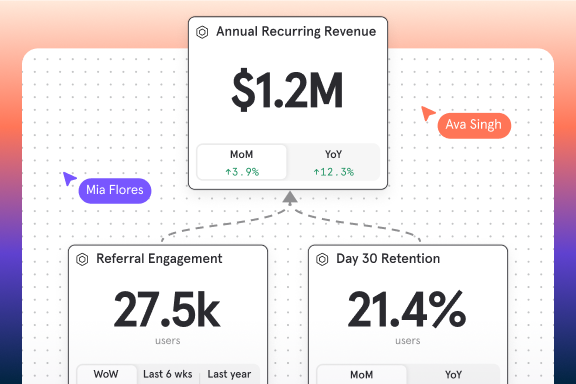How Evulpo found product market fit and doubled its marketing ROI
Company
Evulpo is a learning platform built to support students and schools alike. It offers learning support for students of all levels, tailored to their needs and their curriculum. The platform offers videos, summaries and exercises to ensure that topics covered in school are fully understood by pupils. The Evulpo project is built on the central ethos that education should be accessible for all.
Challenge
Evulpo is used by students across seven different European countries to support their learning. It caters to students of all ages, levels and differing national curriculums. This adds complexity, with each student needing learning opportunities tailored to their needs. Evulpo was focused on rolling out a more personalized learning experience. In addition, the company needed to more accurately forecast its own growth to better plan investments and to provide investors with detailed insights on this trajectory, in order to support fundraising.
Solution
Evulpo selected Mixpanel to identify how users are interacting with content within the platform and where improvements can be made. This will enable Evulpo to combine these insights with machine learning to better personalize the learning experience to the needs of individual students.
Evulpo’s finance teams also use insights from Mixpanel to provide more reliable financial forecasts, present to investors to keep them informed on progress, and support fundraising activity. Product data is also helping the company better evaluate and optimize its digital marketing investments.
Results
- 3x improvement in the accuracy of financial forecasts
- Product insight supported the company’s latest fund raise
- Understood that product usage was 3x stronger in German speaking regions
- Optimized marketing investments achieving 2x better ROI
How they did it
What were the challenges you were experiencing prior to using Mixpanel?
Before Mixpanel we were using an internal data tool, but this led to concerns over the reliability of the data. As an organization, we’re moving towards the long-term goal of understanding user behavior in order to customize the learning experience.
The immediate driver that led us to Mixpanel was our interest in better managing the middle and bottom sections of the funnel – or in essence, everything users are doing in our product. We’re interested not only in what users are doing, but also why they’re taking certain actions. Our previous tool wasn’t event-based, and it couldn’t help us answer these questions.
What have you learned from Mixpanel?
At present we’re still quite early in our product analytics journey and just beginning to create cohorts to understand differences in behavior of distinct groups. For this, Mixpanel is integral. For the first time, it allows us to create segments, such as different schools, ages or countries, and crucially understand how these different user groups are interacting with our content.
In order to achieve our growth objectives, we need to understand where we are losing or acquiring users, but also need to be able to ask: what value-adds can we give to users to improve their learning experience?
We’re currently active in seven different countries: Switzerland, Germany, France, Italy, Spain, Portugal and the UK. And, we have a lot of different forms of content on the platform from theory videos to written summaries and exercises. We want to see which type of content is most popular and which exercises are being completed correctly at different levels, by different users across the countries we operate in.
Lessons are aligned to the national curriculum of countries, but Mixpanel can help us understand what is too easy, or too hard, for a particular cohort.
Mixpanel gives us an overview of our performance in different countries. It allows us to understand where we have product market fit and has optimized our marketing investments, helping to achieve a fairly better ROI.Matteo Borinelli Head of Controlling, Evulpo
Which teams use Mixpanel?
Our CFO and Co-Founder, Jonas Fehlmann, uses Mixpanel to check our company KPI’s. More broadly, our finance team is using Mixpanel to track active users as well as our three key conversion metrics: turning visitors into active users, turning active users into registered users, and turning registered users to paid subscribers.
We also use Mixpanel to improve the accuracy of our financial forecasts. Starting by looking at our daily active users, we use this data to estimate how many people are purchasing our product, and therefore what our estimated revenues will be. This data set can then be used to analyze marketing budget performance. As a result, we’ve improved the accuracy of our financial forecasts by a factor of three.
The product team is also in regular contact with our data team; at the moment, they’re focused on the registration flow. We use the data to align decision making between product and other functions such as design. Our marketing team uses Mixpanel to understand their OKRs, and will use it to deduce whether budgets are allocated wisely, as well as to track progress.
Our financial forecasts have become more precise. With Mixpanel, we now have a reliable base that helps us better understand our runway and plan our growth. Sharing this data with our investors has built trust and contributed to successful fundraising.Matteo Borinelli Head of Controlling, Evulpo
You mentioned work on the registration flow, how have you improved it?
Thanks to Mixpanel we know that the majority of users that register go on to become paying subscribers so it’s important the registration flow is simple. Previously the registration flow was a barrier and we lost lots of users because it was too difficult to register.
We used Mixpanel to test different design options and flows before relaunching with a much better registration process. Since we’ve made these improvements we’ve emailed users that failed to register the first time and encouraged them to try again. And, after the AB testing we’ve seen improvements in click-through rate (CTR) and other conversion metrics.
How is user insight helping to improve marketing?
We’ve used Mixpanel to help us prioritize which geographical areas we invest in. For example, we’ve learned that we have a better product-market fit in the German speaking part of Switzerland than the French speaking region; in fact, it was almost three times better performing. As a result we’ve been able to optimize our marketing by targeting German speaking geographies across digital and social campaigns. We plan to conduct the same analysis across all our accounts, and will continue to align investments to growth opportunities.
How are you driving adoption of Mixpanel within your organization?
Mixpanel differs from other tools because it’s just a lot easier to use. This means we can help any team to get started in a matter of days.
At the moment, we’re looking to implement a system for integrating insights between different departments. We want everyone to have access to Mixpanel, but also to self-serve. We’re achieving this with online learning content about how to use Mixpanel and by collaborating with different teams using Mixpanel Boards and Reports.
Could you explain the kinds of metrics your VC’s can see and whether your product data has helped close a funding round?
We are very transparent with our investors, providing metrics like user growth, geographic performance, average usage, acquisition cost per user, retention and conversion. Investors value these numbers because they know they are leading indicators for our financial performance and the future value of the company.
A good example is our entry into the UK market – an area of interest for our investors – and we’ll be able to give them a detailed overview of our performance there in a few months time.
In terms of securing funding, there’s a variety of factors at play, but data from Mixpanel has provided greater confidence to our investors. We believe it’s been an important factor in closing recent funding rounds and it helps our leadership team to demonstrate the company’s strategy is working.
While I think our investors would still have been happy to back Evulpo, there’s no doubt that everyone has been particularly comfortable and aligned throughout the discussions as a result of having performance metrics to share.
Based on the success you’ve seen to date, what would you have not been able to accomplish without the use of Mixpanel?
Without Mixpanel, we’d still be building the product based solely on intuition about what’s working and what’s not. Our user registration funnel would be significantly less effective and we wouldn’t be able to tailor our content to the needs of users.
Beyond the product, we’d still be making decisions based on growth forecasts that contained a significant margin of error. Questions like, ‘should we hire in the UK and by how much?’ and ‘How big does our user acquisition budget need to be?’ are now much easier to answer.
We’ve already been able to redesign our user registration flow so more users progress to become paying subscribers. In the future, Mixpanel provides the data foundation so we can deliver personalized online learning tailored to the needs of individual students.Nadine Mojado Chief Product Officer, Evulpo
How do you plan to use Mixpanel in the future?
Understanding user behavior is crucial to our long-term strategy of personalized online learning. We’re planning to introduce machine learning so we can recommend which lesson or exercise a student should move to next to achieve the best outcome and close gaps in knowledge. To do this, we need a deep understanding of how our micro-cohorts are succeeding with Evulpo and Mixpanel provide that insight.
Thousands of companies use Mixpanel to build better products. See what Mixpanel can do for your team. Create your free account today.

